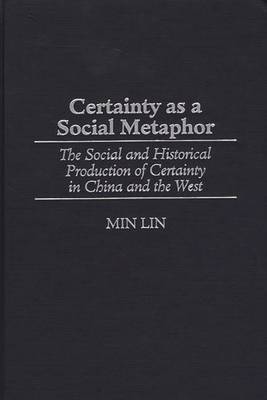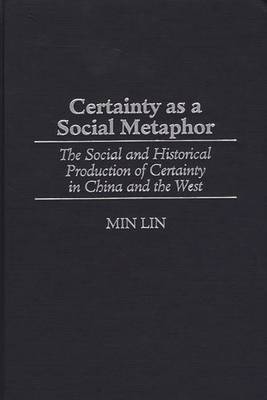
- Retrait gratuit dans votre magasin Club
- 7.000.000 titres dans notre catalogue
- Payer en toute sécurité
- Toujours un magasin près de chez vous
- Retrait gratuit dans votre magasin Club
- 7.000.0000 titres dans notre catalogue
- Payer en toute sécurité
- Toujours un magasin près de chez vous
Certainty as a Social Metaphor
The Social and Historical Production of Certainty in China and the West
Min LinDescription
This volume combines philosophy, the social theory of knowledge, and historical analysis to present a comprehensive study of the idea of certainty as defined in the Western and Chinese intellectual traditions. Philosophical ideas such as certainty are the products of deeply layered socio-historical constructions. The author shows how the highly abstract idea of certainty in philosophical discourse is connected to the concrete social process from which the meaning of certainty is derived. Three different versions of certainty--in modern Western thought, in German Idealism, and in traditional Chinese philosophy--are examined in the context of a historical-comparative study of Western and Chinese social processes.
Three versions of the idea of certainty are represented by the three distinct philosophical discourse and societies explored in this book. However, the pursuit of certainty transcends culture as a fundamental aspect of philosophical thought. This in-depth study shows how the social genesis and function in philosophy of the specific meaning of certainty has been delineated through a process of complex idealogical negotiation by dominant social groups--the bourgeoisie in modern Western Europe, the nobility and state bureaucrats in 18th- and 19th-century Germany, and the landed gentry in traditional China. The author concludes by suggesting new avenues for study inspired by his research.Spécifications
Parties prenantes
- Auteur(s) :
- Editeur:
Contenu
- Nombre de pages :
- 304
- Langue:
- Anglais
- Collection :
Caractéristiques
- EAN:
- 9780313314179
- Date de parution :
- 30-11-00
- Format:
- Livre relié
- Format numérique:
- Genaaid
- Dimensions :
- 163 mm x 241 mm
- Poids :
- 557 g

Les avis
Nous publions uniquement les avis qui respectent les conditions requises. Consultez nos conditions pour les avis.






